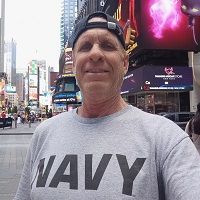Over the years I've had many times when I've worked with the VA. I remember being in Miami FL and losing my wallet with all of my identification and going to the Miami VA for an identification card. In addition to the card, I was signed up for services provided appointments, and enrolled in the Miami VA system. The first indication of PTSD came from the Tucson VA in the mid-eighties. Over the years, I’ve also received services at the Chicago VA when I was hit by a taxi. So, I’ve always had an opinion as to services a veteran should expect from the VA including a VA-sanctioned transitional program designed for veterans experiencing homelessness at Borden Ave. here in NYC.
When Daniel Somers committed suicide in June 2013, In his suicide letter he posted on Gawker in June, 2023, he spoke about the deficiencies in the VA system for getting appointments with mental health. While the country was focused on scheduling within the medical health care of the Phoenix VA and other VAs, it was never revealed that the same scheduling scandal was also taking place with mental health scheduling as well.
As a veteran who has seen both sides of the Veterans Affairs Grant and Per Diem transitional program, I can attest to how this program saves lives when properly administered. That includes access to resources and supportive services from within the facility instead of being shoved off on other VA agencies and services. Veterans should not only have access to a nutritional diet prepared on site, but also have access to food donations and groups from the community to engage with veterans.
Veterans at NYC Transitional Program are Provided Access to a safe space, housing resources, decent food, and a drug-free environment in exchange for enrollment in VA programs, sobriety, and mental health treatment.




